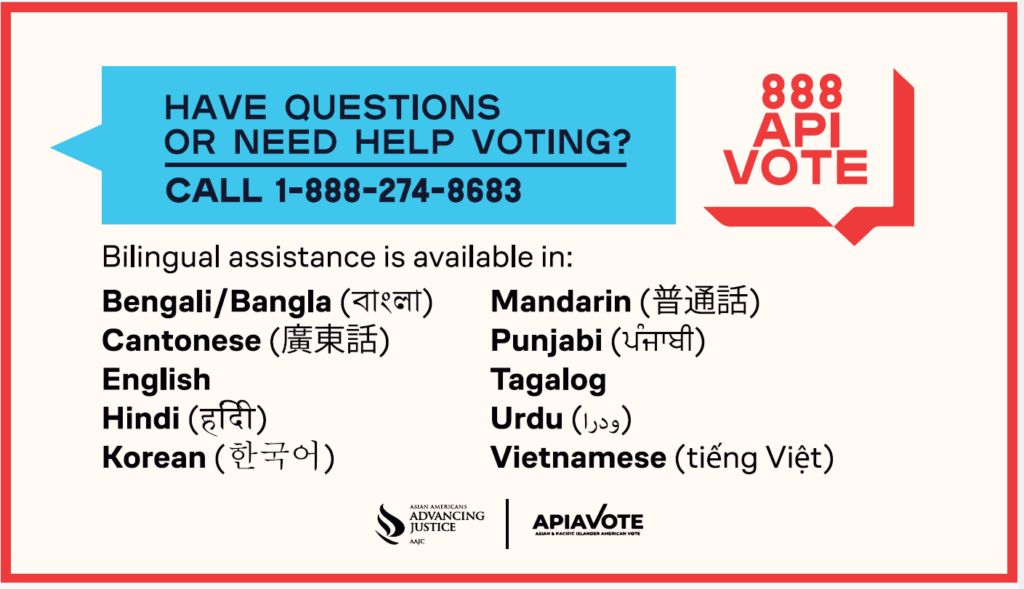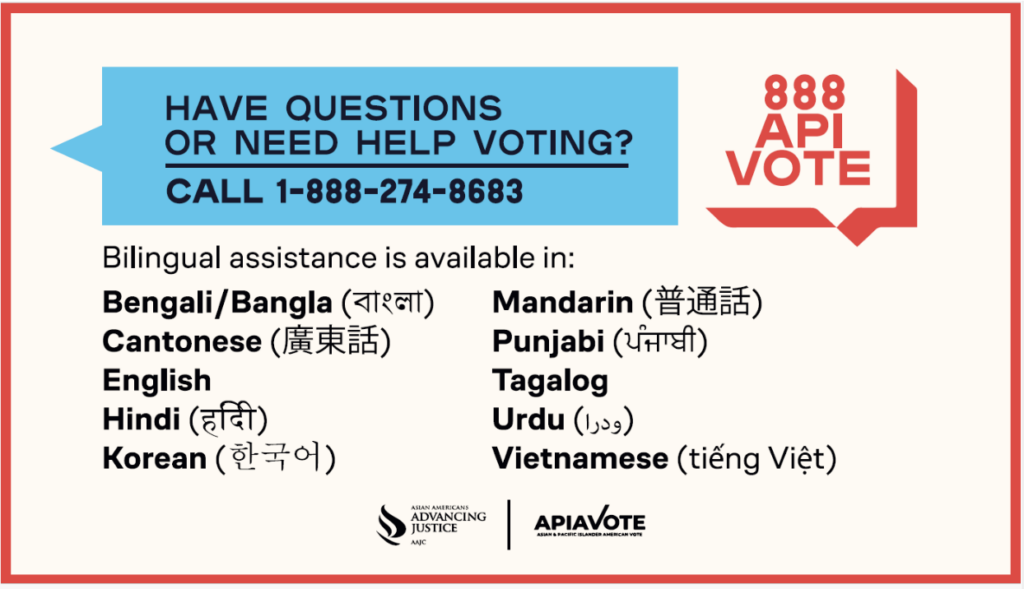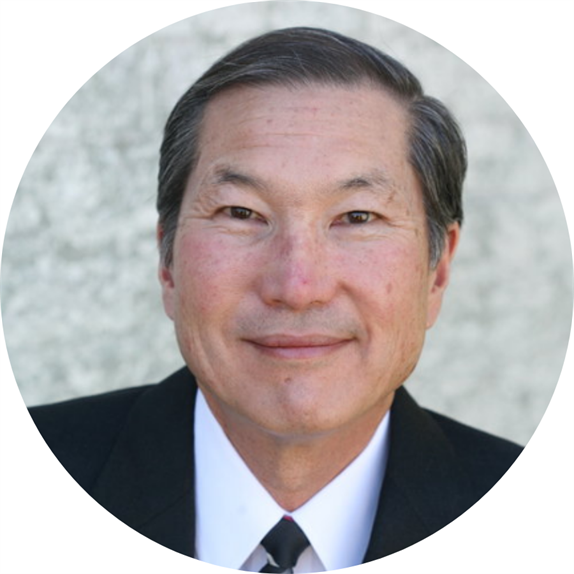
With only a week remaining in this high-stakes election season, now is the time to ensure our communities are heard and empowered. The NAPABA Policy Team is sharing the following source to support you in making a lasting impact in these final days.
Join the APIAVote multilingual hotline initiative as a volunteer! NAPABA has partnered with Asian and Pacific Islander American Vote (APIAVote) to offer our AANHPI communities a hotline providing vital voter information in multiple languages. This is a non-partisan, multilingual informational hotline designed to help members of our community find polling places, understand how to register to vote, and ensure they have timely and factual information needed to get to the polls.
APIAVote needs persons fluent in Bengali/Bangla, Cantonese, Hindi, Punjabi, Tagalog, Urdu and has a specific urgent need for persons fluent in Korean, Mandarin, and Vietnamese!
Here is what you can expect as a volunteer:
- Provide live, remote assistance from Monday, October 7th leading up to Election Day on Tuesday, November 5th!
- Return calls to voters who left voicemails asking for voter assistance
- Be supported every step of the way by the co-captains of APIA Vote’s Hotline: Jean Ger, Zaria Guignard, Mike Messina, Hannah Locop, and Yu Jing Chen
- Hotline captains will be online and available to assist every day
- No prior experience is required – all training will be provided via Zoom throughout the election cycle.
This election season is one of the most significant in recent history, and your involvement is crucial. Sign up to volunteer here! After registering, you’ll have access to on-demand training and a community of dedicated leaders ready to assist every step of the way.
For additional resources, including volunteer opportunities and voting information, visit NAPABA’s 2024 Voting Hub.
Thank you for your commitment to empowering the AANHPI community. Your voice and leadership help shape a more inclusive, informed future. Let’s make this final week count.









